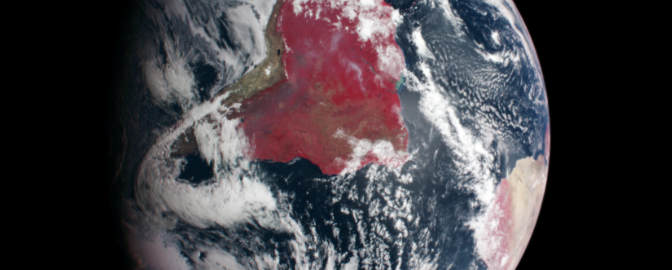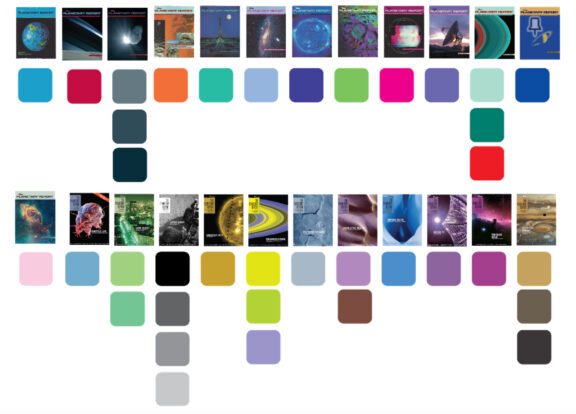2025 Impact Report
In 2025, The Planetary Society advanced its mission to empower the world’s citizens to advocate for space science and exploration. Through advocacy, education, science, and global collaboration, we championed the scientific exploration of space during a year that tested and proved the strength of our movement.
Not a member? Help ensure a bright future for space science — join today for just $4/month.
Space Policy and Advocacy

Saving NASA Science
When reports emerged of draconian cuts to NASA’s Science Mission Directorate, The Planetary Society responded by creating the most sophisticated and ambitious advocacy campaign in our organization’s history.
Our team has worked tirelessly to spur space advocates to action, build coalitions, and provide unique insights, historical context, and trusted policy analysis to policymakers in response. We worked closely with the bipartisan Congressional Planetary Science Caucus to organize internal congressional outreach and build broad support across party lines, laying the foundation for Congress to unambiguously reject the cuts to NASA and the space science enterprise (more later).
We pioneered the use of advanced AI and other custom software tools to enable rapid analysis and generate unique resources for our members and advocates. We deployed the only dedicated system to track DOGE cancellations of NASA contracts, generate one-of-a-kind economic impact reports for NASA science across the country, and provide strategic outreach guides for individual members of Congress for space advocates. We even open-sourced some of our internal software tools to improve access to contract and spending data and provide consolidated datasets of NASA contracts.
We paired this with a comprehensive media strategy targeting news outlets, social media outreach, and direct engagement with influencers and podcasters. CEO Bill Nye, Chief of Space Policy Casey Dreier, and Director of Government Relations Jack Kiraly made numerous live TV appearances on CNN, ABC, CBS, NBC News, and BBC News, to name a few. They appeared in high-profile podcasts like StarTalk Radio, gave hundreds of interviews, and published a guest essay in The New York Times. Altogether, our tracking metrics show that efforts to raise awareness of the threats to NASA science generated 1,518 news articles with a combined monthly readership of 41.6 billion. Our innovative social media campaigns had extraordinary reach. On Instagram alone, our Save NASA Science reels generated approximately 9 million views, collectively representing 406 days, 4 hours, 48 minutes, and 55 seconds of time engaging with the issue of cuts to NASA science.
Advocacy by the Numbers
2
Days of Action in Washington, D.C.346
participants in our Days of Action20+
partner organizations in the Save NASA Science coalition83,000+
messages sent to Congress1,518
news articles featuring Planetary Society leaders9 million
views on the Planetary Society's Save NASA Science posts on Instagram120
congressional signatories on letters led by the Planetary Science Caucus leadership368,595
lines of code written for custom NASA budget analysis, tracking, and presentation.
Planetary Society membership rallies to support NASA science
Our members stepped up this year as well. So far, they have sent more than 83,000 letters to Congress through our online Action Center. Back in March, 105 members from 27 states gathered on Capitol Hill for our Day of Action to meet with their legislators to champion NASA’s science programs. Then, in October, we organized an unprecedented second Day of Action, this time in coordination with 19 other partner organizations. Together, we brought nearly 250 citizen-advocates from 37 states and the District of Columbia — almost certainly the largest single advocacy event for space science in American history.

New investments enabled by members
Thanks to our extraordinary members and donors, The Planetary Society is increasing its investment in space policy and advocacy activities.
In September, we welcomed Dr. Ari Koeppel as our first-ever Science & Technology Policy Fellow, a prestigious program managed by the American Association for the Advancement of Science (AAAS). Ari’s presence increases our bandwidth in D.C., allowing us to engage more people more frequently on our core issues of space science and exploration.
The Planetary Society also opened its first dedicated office in Washington, D.C., just minutes away from Capitol Hill. This location enables us to work closely with partners, provide meeting space for members and visiting advocates, host training for future Days of Action in a first-rate conference center, and further establish The Society as the preeminent organization supporting space science.
Again, none of these investments would have been possible without the steadfast financial support of our membership.
Real Impact
At the time of publication, NASA’s 2026 budget was still in limbo due to an extended government shutdown. However, we have made significant progress in both Senate and House funding legislation.
The Senate appropriations bill rejects all cuts to NASA and NASA science. They provide $25 billion for NASA and $7.3 billion for NASA Science, the same as 2024 and 2025. It specifically calls out support for nearly every mission proposed for termination and directs ongoing investments to current and future scientific initiatives.
The House appropriations bill for NASA fully funds our top priorities of Planetary Science and Astrophysics, though it would cut Earth Science and Heliophysics. It also provides specific funding for missions threatened with termination, including New Horizons, Chandra X-Ray Telescope, and Mars Sample Return. The House bill rejects any cuts to NASA’s overall budget.
Furthermore, protecting NASA science was explicitly called out as a priority by congressional leaders working on these bills.
We will continue to work with congressional allies to argue for the best qualities of each bill to be included in the final compromise legislation to fund NASA in 2026.
Education and Outreach
A new look for The Planetary Report
Our flagship member magazine underwent a full redesign by creative duo Aïda Amer and Arielle Wilkins, bringing a bold, modern aesthetic inspired by The Planetary Society’s history. The refresh, titled "The Astronaut’s Almanac," honors our legacy while appealing to the next generation of space enthusiasts.
Planetary Radio: Book Club Edition
We expanded our storytelling reach with the debut of Planetary Radio: Book Club Edition, featuring bestselling authors like Andy Weir discussing the intersection of science and imagination.

The Cosmos Award
Author Dava Sobel received The Planetary Society’s Cosmos Award for Outstanding Public Presentation of Science, joining past luminaries including James Cameron, Neil deGrasse Tyson, and Stephen Hawking.
Webby Award nominations
The Planetary Society’s digital presence earned two Webby Award nominations in the Science & Education category, recognizing our leadership in online science communication alongside NASA and National Geographic.
Science and Technology

PlanetVac reaches the Moon
On March 2, Firefly Aerospace’s Blue Ghost lander touched down on the Moon carrying PlanetVac, a sample-collection technology developed by Honeybee Robotics with funding from The Planetary Society. This marked the first flight of a member-funded technology on another world — a historic milestone for our community.
Shoemaker NEO Grants expand
We awarded a record $87,562 to 10 asteroid-hunting observatories in eight countries — the largest single-year total in the Shoemaker NEO Grant program’s history — supporting the global effort to detect and track near-Earth asteroids.
A new round of STEP Grants
This year, we opened a new round of applications for STEP Grants — Science and Technology Empowered by the Public. Previous winners continued their work this year: SETI enabled by citizen science, a novel technique for studying near-Earth asteroids, investigating the growth of edible plants in simulated deep-space conditions, and analyzing salty lakes on Earth that may share similarities with oceans of other worlds.
Global Collaboration

America’s Favorite Teacher partnership
Through our collaboration with Colossal’s America’s Favorite Teacher competition, second-grade teacher Jonathan Koch of Newark, NJ, earned the 2025 title — along with a $25,000 prize and a school assembly hosted by Bill Nye. The campaign raised an extraordinary $3.2 million for The Planetary Society’s initiatives.
Celebrating space worldwide
The Society partnered with NASA’s International Observe the Moon Night and World Space Week, providing educational resources and activities to inspire learners of all ages to connect with the Cosmos.


 Explore Worlds
Explore Worlds Find Life
Find Life Defend Earth
Defend Earth


